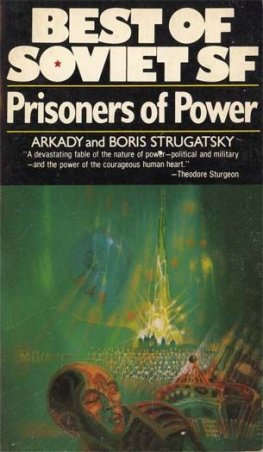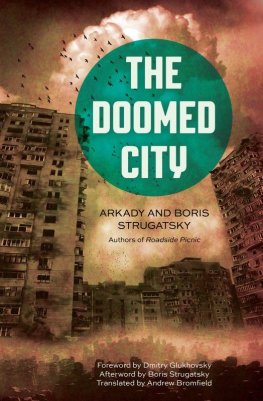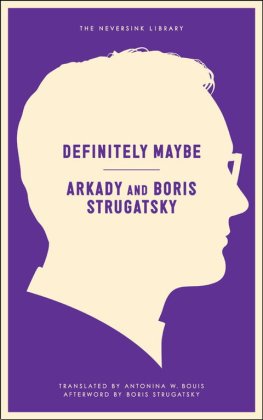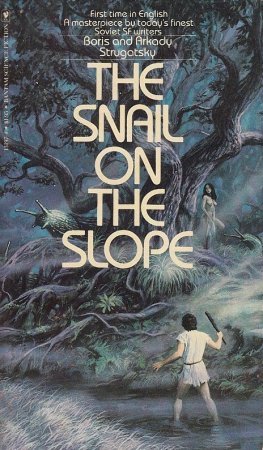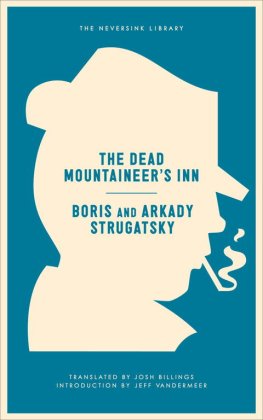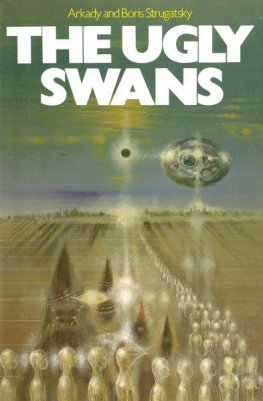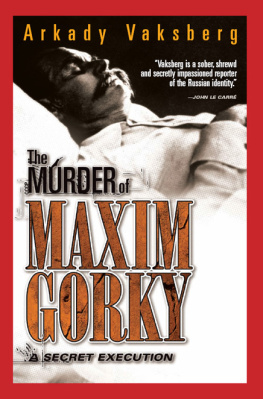Arkady Strugatsky - Prisoners of Power
Here you can read online Arkady Strugatsky - Prisoners of Power full text of the book (entire story) in english for free. Download pdf and epub, get meaning, cover and reviews about this ebook. City: London, year: 1977, publisher: Collier Macmillan Publishing, genre: Science fiction. Description of the work, (preface) as well as reviews are available. Best literature library LitArk.com created for fans of good reading and offers a wide selection of genres:
Romance novel
Science fiction
Adventure
Detective
Science
History
Home and family
Prose
Art
Politics
Computer
Non-fiction
Religion
Business
Children
Humor
Choose a favorite category and find really read worthwhile books. Enjoy immersion in the world of imagination, feel the emotions of the characters or learn something new for yourself, make an fascinating discovery.
- Book:Prisoners of Power
- Author:
- Publisher:Collier Macmillan Publishing
- Genre:
- Year:1977
- City:London
- Rating:4 / 5
- Favourites:Add to favourites
- Your mark:
- 80
- 1
- 2
- 3
- 4
- 5
Prisoners of Power: summary, description and annotation
We offer to read an annotation, description, summary or preface (depends on what the author of the book "Prisoners of Power" wrote himself). If you haven't found the necessary information about the book — write in the comments, we will try to find it.
Prisoners of Power — read online for free the complete book (whole text) full work
Below is the text of the book, divided by pages. System saving the place of the last page read, allows you to conveniently read the book "Prisoners of Power" online for free, without having to search again every time where you left off. Put a bookmark, and you can go to the page where you finished reading at any time.
Font size:
Interval:
Bookmark:
Arkady Strugatsky
Prisoners of Power
Arkady amp; Boris Strugatsky
Prisoners of Power
Arcady And Boris Strugatsky
Prisoners of Power
(c) Text Arcady And Boris Strugatsky
(c) Introduction by Theodore Sturgeon.
(c) Translation from the Russian by Helen Saltz Jacobson, 1977
Collier Macmillan Publishing, London
Original: "Obitaemyi ostrov"
INTRODUCTION
Early in these pages, when young Maxim dips his hand into a river on the alien planet on which he has just been marooned, and withdraws it hastily because the water is radioactive, the knowledgeable science fiction reader is likely to say, "Come on, now, fellows how could he know? Or, if it were so devastatingly, dangerously radioactive that he could determine it without instruments, how could he notnot know before he stuck iris silly hand in it?" But one forgives, proceeds in a smug and self-satisfied way, because Maxim's adventures are adventurous indeed, his encounters believable, suspenseful, unexpected, and quite beyond anticipation, the Strugatskys being the plot-masters that they are.
Then, some hundred-or-so pages in, the reader realizes that Maxim, being what he is, could most certainly perform that small feat at the river, and would; further, the reader realizes that this discovery was made some time back, indirectly, in the gradual unfolding of Maxim's character.
This knack the conscious commission of apparent illogic, quietly rectified in later narration is typical Strugatsky. It is the gleeful and deliberate provocation of criticism, in the sure knowledge that the criticism is made on the basis of insufficient data, and that the critic will be shown to be, in the true sense of the word, prejudiced pre-judging. After this has happened to the reader a number of times (and it does) the reader has no recourse but to trust the authors and no author could ask for more than that. Few, however, can command your trust so deftly.
There is a great deal more in the Strugatsky bag of tricks. They will, for example, build up a vertiginous altitude of suspense (as in the scene where Maxim is sent to execute prisoners, one of them a woman) ending with a shocking twist and then proceed with something else, happening to someone else days later, joyfully refusing for the longest time to tell you just what has happened to Maxim. And when they do, what has happened to him is all over, part of his past, and we find him engaged in something quite new. Yet the tapestry is ultimately done and hung, the authors having completed certain panels while you weren't looking.
Then there's the matter of the shifting point-of-view. Any good creative writing professor (though there are those who maintain there is no such thing) will tell you that only one character permits the reader inside his head, so that you know what he is thinking and feeling. All the other characters act outact out what they are thinking and feeling. "Joe felt a surge of anger and thought what a great joy it would be to smash that smiling face," while "Sam turned white with rage and menacingly raised his embroidery-hoop." Well, apparently the Strugatskys don't give a damn what Teacher said. We repeatedly get inside the heads of many different people, not all of protagonist stature; but, as in the authors' use of their other tricks, we never enter through clumsiness, never by accident, never without a solid reason.
So much for technique; any Strugatsky opus (I think particularly of Hard to Be a GodHard to Be a God and Roadside PicnicRoadside Picnic) shows them to be potent and resourceful tellers of tales. But fiction is composed not only of manner, but of matter, and it is this that is most compelling, most provocative about their work.
First of all, there is the matter of character development. Here the Strugatskys obey one of the prime rules of lasting and important fiction: the central character is changedchanged by the events of the narrative. There are no exceptions to this in great literature; your protagonist grows, gains, loses, perhaps dies, but he is not the same at the end as he was in the beginning, and never can be again. Qt is this which dooms series television to the minor niches of literature, no matter how beautifully written; the central character must be the same next week as he is tonight, no matter how drastic the action.) Maxim is without doubt a species of superman, and in lesser hands he would sweep aside all obstacles and emerge predictably triumphant. And Maxim, indeed, does perform many a superhuman feat. Along with these, however, he commits some horrible blunders, and more than a few laughable ones. His na(vet( is established early, as is his humanity. He loses the former the hard way, wherever his innocence is shown to be, in the matrix of action, just ignorance. The latter, his humanity, he never loses at all, whether it is shown as falling face-first into a mud puddle or grieving at the inexcusable death of a friend. His whole being, however, is work-hardened as the story progresses; placing himself so often between the hammer and the anvil of events toughens and sharpens him, yet never even threatens that deep compassion which makes of him such an engaging person. There are many facets to his personality, but cynicism is not one of them. Not even when he confronts the bureaucrats.
And here we come to the most delightful, the most penetrating aspect of the Strugatsky corpus. The brothers have obviously declared war on the bureaucrats on their self-perpetuation, their greed, their pomposity, their prostration before the great god Protocol, their dedication to climbing the official ladder, and their willingness, in that climb, to forgo decency, honor, personal loyalty, honesty, even logic and consistency when expedient. Faced with a bureaucrat, civilian or military, the Strugatskys resist the temptation to explicate evil, to pile horror upon horror, vileness upon vileness, in an effort to turn our faces and our stomachs; for in that Grand GuignolGrand Guignol approach there is a quantum of awe. The brothers resort rather to ridicule. By deft touches of slight exaggeration, by swift indications of bad digestion, bad manners, and bad (or atrophied) consciences, they succeed in making the bureaucrats ridicule themselves.
But it doesn't stop there; for when the self-serving, self-seeking officials become responsible for the cruel enslavement of the entire populace, and instigate a war in which real people by the thousands die terrible and agonizing deaths, the clown has set fire to the circus tent, and nothing he and his kind are or do from then on can be the least bit funny. There is a battle scene in this book which brings this out unforgettably; I find myself enriched and grateful for it, and for another beautiful Strugatsky novel.
Theodore Sturgeon
San Diego, California, 1977
____________________________________________
PART ONE: ROBINSON CRUSOE
1.
Maxim opened the hatch, leaned out, and cautiously scanned the sky. Low-lying and solid-looking, it lacked that airy transparency suggestive of infinite space and a multitude of inhabited worlds; it was a real biblical firmament, smooth and dense. Undoubtedly this firmament rested on the powerful shoulders of a local Atlas. It glowed with a steady phosphorescence. Maxim looked for the hole that his ship had pierced, but it was gone; only two large dark blots floated at the zenith like dead bodies in water. Flinging the hatch wide open, he jumped into the tall dry grass.
The dense hot air smelled of dust, rusted iron, trampled vegetation, life. And of death, long past and incomprehensible. The grass was waist-high. Nearby, dense bushes loomed darkly, and dreary gnarled trees occasionally broke the landscape. It was almost as bright as a clear moonlit night on Earth, but without Earth's moon shadows and hazy nocturnal blueness. Everything was gray, dusty, and flat. The ship rested on the bottom of an enormous hollow with sloping sides. The surrounding terrain rose sharply toward a washed-out horizon; the landscape seemed strange because nearby a broad, serene river flowed westward and apparently upward along one slope.
Font size:
Interval:
Bookmark:
Similar books «Prisoners of Power»
Look at similar books to Prisoners of Power. We have selected literature similar in name and meaning in the hope of providing readers with more options to find new, interesting, not yet read works.
Discussion, reviews of the book Prisoners of Power and just readers' own opinions. Leave your comments, write what you think about the work, its meaning or the main characters. Specify what exactly you liked and what you didn't like, and why you think so.

